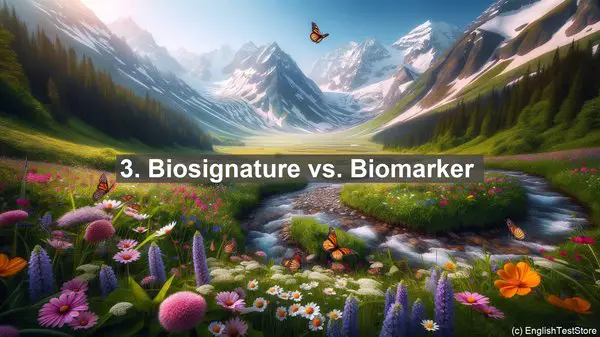Introduction
Today, we’re going to delve into the fascinating world of astrobiology. But before we begin, let’s clear up some common word confusions that often arise in this field.
1. Astrobiology vs. Astronomy
Astrobiology is the study of life in the universe, while astronomy focuses on celestial objects and phenomena. While they share a connection, they have distinct areas of focus.
2. Exoplanet vs. Extrasolar Planet
Both terms refer to planets outside our solar system. Exoplanet is the more commonly used term, while extrasolar planet is a bit older. However, they are essentially interchangeable.
3. Biosignature vs. Biomarker
Biosignatures are indirect evidence of life, like atmospheric gases, while biomarkers are direct evidence, such as fossils or DNA. Think of biosignatures as clues and biomarkers as concrete proof.
4. Panspermia vs. Directed Panspermia
Panspermia suggests that life can be spread throughout the universe via natural means, like comets. Directed panspermia, on the other hand, proposes intentional seeding of life by advanced civilizations.

5. Habitable Zone vs. Goldilocks Zone
Both terms refer to the region around a star where conditions might be suitable for life. Habitable zone is the more scientific term, while Goldilocks zone is a playful alternative.

6. Extremophile vs. Extremotolerant
Extremophiles are organisms that thrive in extreme environments, while extremotolerant organisms can survive but not necessarily thrive in such conditions. It’s a distinction between adaptation and mere survival.
7. Astrochemistry vs. Astrobiology
Astrochemistry is the study of chemical processes in space, while astrobiology encompasses the broader study of life’s origin, evolution, and distribution in the universe.
8. SETI vs. METI
SETI, or the Search for Extraterrestrial Intelligence, focuses on detecting signals from potential alien civilizations. METI, or Messaging Extraterrestrial Intelligence, involves actively transmitting messages to them.
9. Red Dwarf vs. Brown Dwarf
Red dwarfs are small, cool stars that emit red light, while brown dwarfs are larger than planets but smaller than stars. They are often referred to as ‘failed stars.’
10. Astrobiology vs. Xenobiology
Astrobiology is the study of life beyond Earth, while xenobiology focuses on hypothetical life forms that may have different biochemistries. Think of astrobiology as the broader field.
